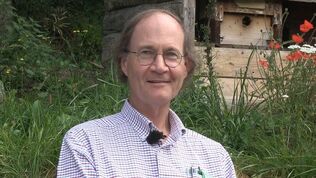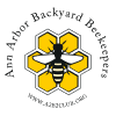|
The main presentation starts at 7 pm, but feel free to drop in beginning at 6:30 pm for an open Q&A session. To view take home points from this meeting please visit the "General Meeting Take Home Points" section of the members only tab.  Darwinian beekeeping is an evolutionary approach to beekeeping, one that seeks to provide managed honey bee colonies with living conditions that are as close as possible to those of wild honey bee colonies. The goal is to harmonize our beekeeping methods with the natural history of Apis mellifera, and thus allow the bees to make full use of the toolkit of adaptations that they have evolved over the last 30 million years. I will review ways in which the living conditions of honey bees differ between wild and managed colonies. I will also show how we can pursue beekeeping in a way that is centered less on treating a bee colony as a honey factory and more on nurturing the lives of the bees. Dr. Thomas D. Seeley is the Horace White Professor in Biology at Cornell University. He is based in the Department of Neurobiology and Behavior, where he teaches courses on animal behavior and does research on the behavior and social life of honey bees. His work is summarized in three books: Honeybee Ecology (1985), The Wisdom of the Hive (1995), and Honeybee Democracy (2010). He has also written Following the Wild Bees (2019) and The Lives of Bees: The Untold Story of the Honey Bee in the Wild (2019). Dr. Seeley received his undergraduate degree in chemistry from Dartmouth College. He received his PhD in 1978 from Harvard University, where he studied with Bert Hölldobler and Edward O. Wilson. He held a postdoctoral fellowship in the Society of Fellows at Harvard until 1980, when he accepted a faculty position at Yale University. He remained there until 1986, when he joined the Department of Neurobiology and Behavior at Cornell University. In recognition of his scientific work, he has received the Alexander von Humboldt Distinguished U.S. Scientist Prize, been awarded a Guggenheim Fellowship, received a Gold Medal Book Award from Apimondia for The Wisdom of the Hive, and been elected a Fellow of both the Animal Behavior Society and the American Academy of Arts and Sciences. His most enduring honor, though, is to have had a species of bee named after him: Neocorynurella seeleyi. Please join us - our monthly meetings are always free and open to the public!
Please join us - our monthly meetings are always free and open to the public!
Comments are closed.
|
Archives
February 2024
Categories
All
|

